Thomas Frank
Brentford, 2018–2025
When I told my wife, Nanna, that I was unsure about Brentford, I could hear the disappointment in her voice.
It was the chance to move to London. But, more importantly, it was an assistant manager’s job. She liked the idea of me not having the pressure of being a manager or head coach.
But my ambition was to be a head coach again. I’d been Brondby head coach from 2013 until March 2016. After six months off to rest and recharge my batteries, I got a call from Rasmus Ankersen, one of the sporting directors at Brentford, asking me if I was interested in being an assistant for Dean Smith (below) alongside Richard O’Kelly.
I wanted a new challenge, something away from Denmark, and my family wanted to experience a new culture.
But it’s very difficult to find a good work-life balance as a manager. It’s almost impossible. So, in that way, it appealed.
Initially, I was doubtful about this opportunity because it was a step down in terms of responsibility. However, after two interviews and lots of talks with the club about where Brentford was headed and how they were going to get there, the thought of taking the job started to grow on me.
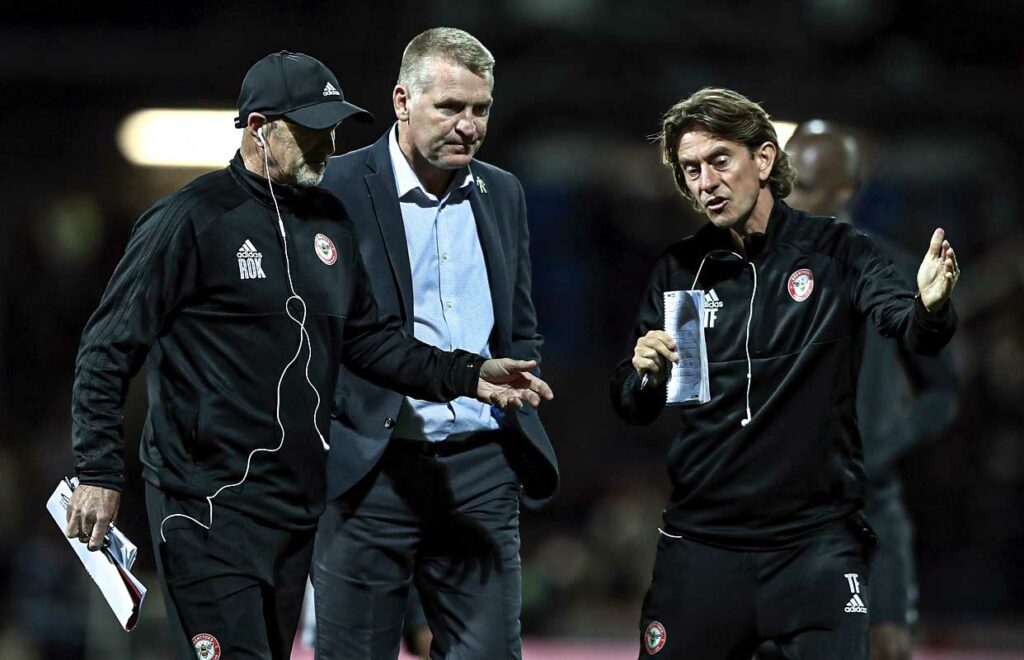
The style of football they wanted the team to play really appealed to me, and they were happy with the ideas I had for the team. We wanted to be an aggressive, pressing team that dominated the ball and took charge of games.
On top of that, there was a big focus on the culture at the club.
Then there was Nanna, who thought it was perfect. The decision was 50 per cent me and my career, and 50 per cent Nanna and the children. We decided to go for it.
I’m delighted I took the plunge. I was assistant for two years – from December 2016 until October 2018 – and I learned so much in that time: about the Championship, and about English football. But when Dean left for Aston Villa, I gladly made the step up to head coach.
The time was right for me to be in charge again.
"We have a no-dickheads culture – we want people with the right attitude: confident but humble"
Then – as if just to check that the owners and sporting directors really trusted me – I lost eight of the first 10 games. It was an awful run that can’t have given them, or the fans, much hope.
Luckily, the powers that be gave me the time to turn things around, and we had a strong end to the season. We found a system that suited the players and, together, it felt like we were building something worthwhile.
Then, at the end of the 2018/19 season, we did like Brentford always do, and sold some players.
We are happy to sell important players if the right offer comes in. That meant losing our top scorer in each of my first two summers as manager.
We just have to make sure we give ourselves the best possible chance of finding the right replacement.
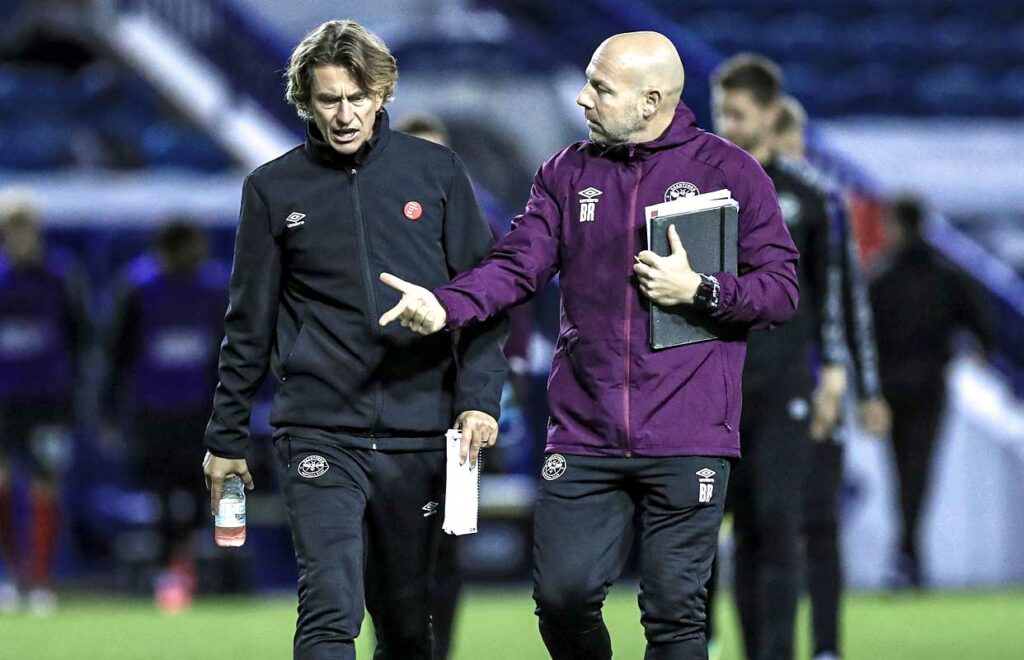
A lot of time, effort and resources go into our recruitment. My background is in talent development – my first 20 years in coaching was as a talent developer. My assistant, Brian Riemer, is the same – and Kevin O’Connor, who was in charge of the B Team before moving in to the first-team coaching group, has a similar background. We like signing young players and working to improve them.
We have a sports psychologist, a sleep coach, a nutritionist, chefs, and people who work on the mentality of the players. Everything is set up to get the most from our players, and make them the best they can possibly be.
But we don’t just look at making the best players. We want to make the best people, too. We have a ‘no dickheads’ culture, and we want people with the right attitude: confident but humble. And we want people who are ready to work hard.
It’s extremely important to us that we recruit players who fit the system, both on and off the field.
"We still hadn't replaced Neal Maupay's goals – but I had a plan"
Once we find the right player, we put a lot of effort into developing them as both players and people. Improving them in this way will naturally increase their value, and obviously that is important for the club.
I do get a lot of joy from buying a player for a small amount and selling them on for a great deal more. That means I have done my job well, because I have helped improve the player.
So, in my first summer transfer window as manager, we sold our top scorer and the second-highest scorer in the whole Championship, Neal Maupay, to Brighton. We also sold Ezri Konsa to Aston Villa and Romaine Sawyers to West Brom. Those three played more Championship minutes that season than anyone else in our squad, and we sold all of them.
We didn’t panic, though. We knew we had ended the season well, and that these deals would bring in enough money to invest again.
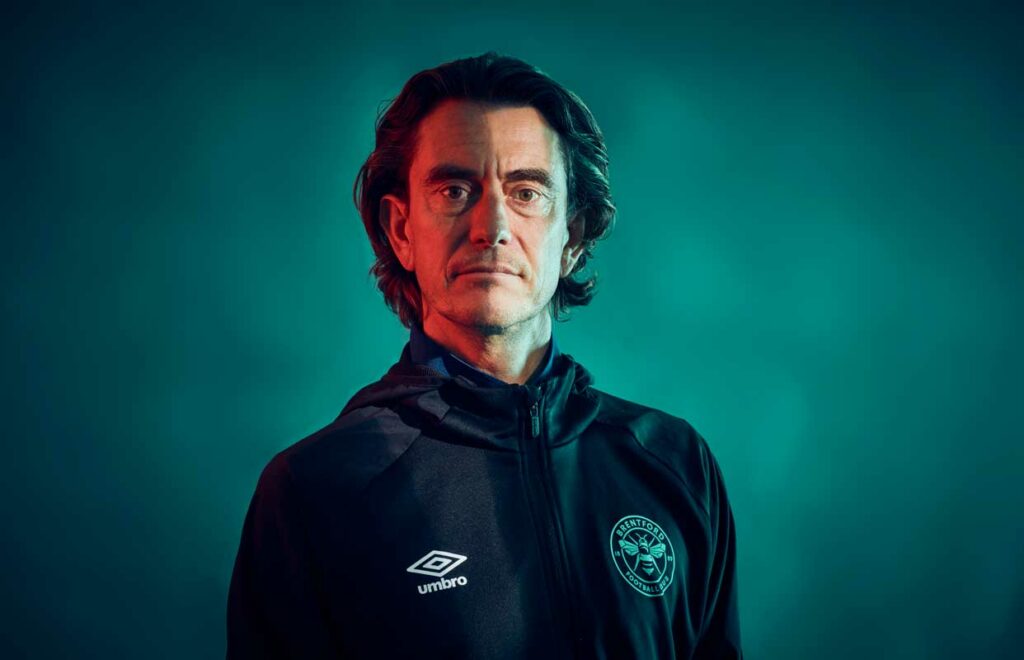
We bought a new goalkeeper, in David Raya, and two new centre-backs in Ethan Pinnock and Pontus Jansson. We got a number six in Christian Norgaard. That was a new core at the back: a keeper, two centre-backs and a six. Things were starting to look interesting.
Then we got another midfielder in Mathias Jensen, and a winger in Bryan Mbuemo. These were really good players – as you can see from their performances in the Premier League – but we knew they might need a bit of time to click. It was the foundations for something really good.
We still hadn’t replaced Neal’s goals, though.
But I had a plan.
We had seen potential in a player not only already in our squad – someone already in our first-choice team.
"For months we'd been chasing West Brom, and suddenly a point would take us above them"
Ollie Watkins had scored 10 goals from the wing, but we thought he could play as the striker. We went all in on that.
Brian Riemer and I knew Ollie had ambitions of playing in the Premier League. We sat down with Ollie and told him: “You’re not going anywhere now. If you’re going to leave us, you need to leave on a high.
“This season, you had an average season. If you need to leave, you need to have a great one.”
He went on to score 25 goals for us as our centre-forward the very next season (below), and he was one of the best players in the Championship.
We knew before the season started that we were a team with top-six potential. And when the new players settled in, things started to come together.
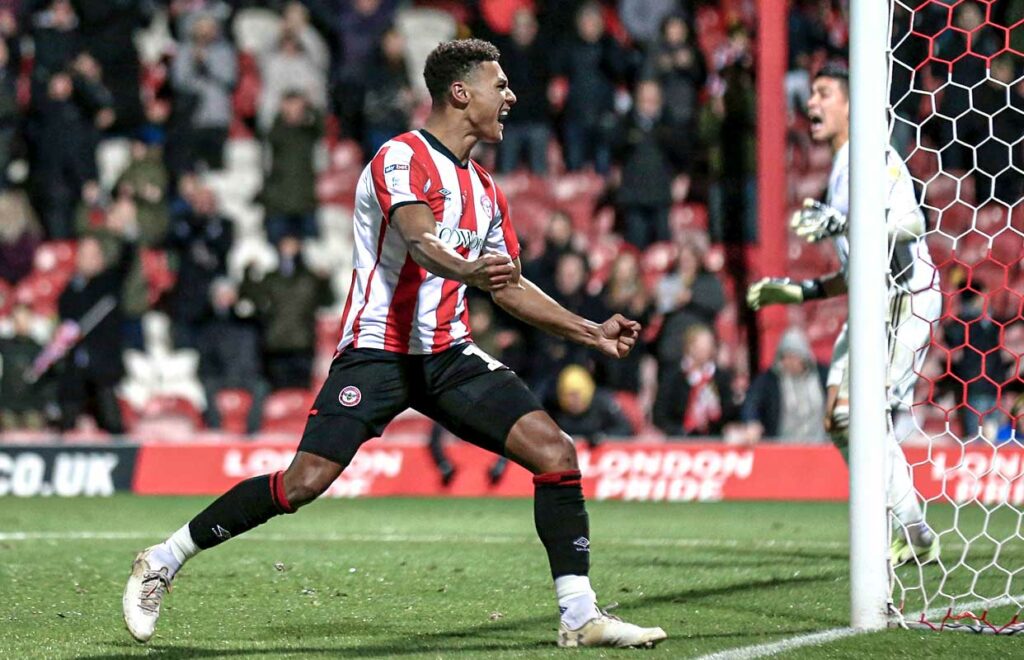
We were in and out of the playoff spots all season, and then we started climbing the table. When the season was interrupted due to Covid, we were fourth – but we were 10 points off West Brom in the second automatic promotion spot.
It was a strange time when we returned for what was essentially a mid-season pre-season. We had four or five weeks, but the first two of those we couldn’t train in groups. We had to give out individual training programs and any new tactical plans over FaceTime.
But we dealt with it well. And, what’s more, we’d had a few injuries just before the break in the season. When we came back, everyone was fit.
Our first game back was away to Fulham, who were third. It was still goalless in the 88th minute, but then we scored twice to win 2-0. Everyone above us had dropped points, too, so we moved to within eight points of top spot.
Next, we played West Brom, who were in the top two. We outplayed them from start to finish, and won 1-0 to reduce the gap to the automatic promotion spots to five points.
"We had some players who felt the pressure – and we lost"
Our confidence was building, and we had a great deal of momentum. I started to think things were looking good.
We won match after match, and others kept dropping points. We won our first seven games after the break in the season. With two games to go, we were one point behind second-placed West Brom.
In the penultimate round of fixtures, West Brom lost on the Friday night. We were playing the early kick-off on the Saturday away to Stoke, for whom relegation was still a possibility.
It was a different feeling. For weeks, months, we’d been chasing West Brom. Suddenly, with a draw, we could go past them and into the automatic promotion spots.
The dynamic changed.
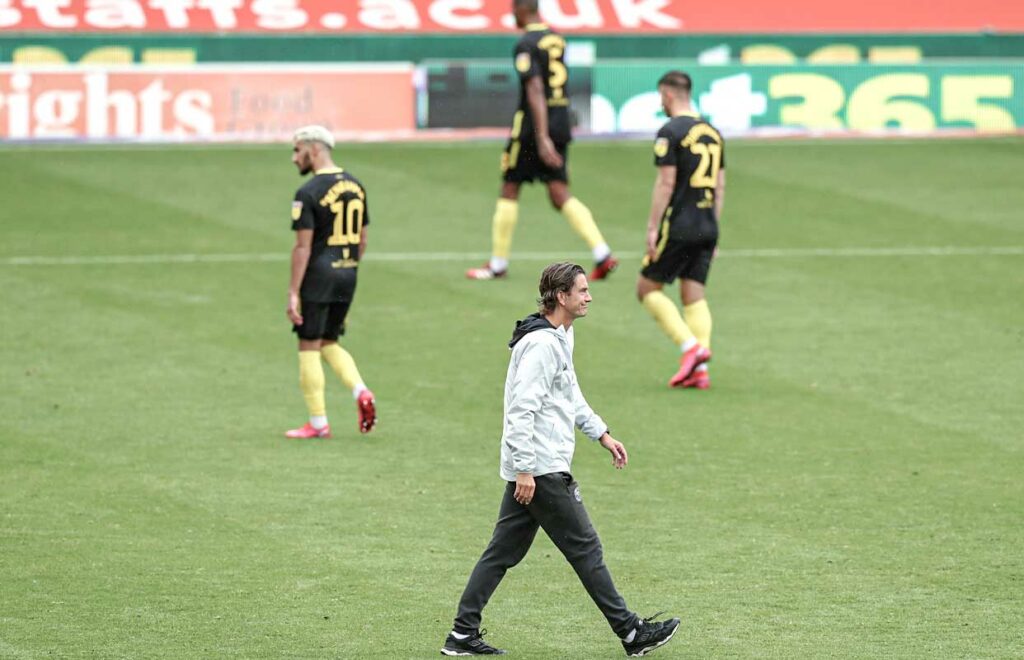
We had some players – I would only say two or three – who felt the pressure, and we lost (above).
But even so, we didn’t deserve to lose. If you replayed that Stoke match 10 times, it would end in a draw six or seven times. It’s crazy that we didn’t get the point that would have taken us second.
We left ourselves with everything to do in the final game. All we had to do was better West Brom’s result.
We were playing at home to Barnsley, who needed a win to stand any chance of survival.
We went 1-0 down, but brought it back to 1-1. And then we piled on the pressure. We missed two huge chances to win it, and then Barnsley went up the other end and scored an injury-time winner.
"Football is such a random game. One moment can decide your entire season"
After the full-time whistle, we found out West Brom had drawn with QPR. If we’d won, we would have been promoted. That was really tough to take.
There was a lot of frustration, a lot of emotions in the dressing room. It had been an emotional rollercoaster; most people will never understand what it’s like to be in a situation like that.
We’d been so close to promotion, and now we had to pick ourselves up to prepare for the playoffs against Swansea. The first leg was only four days after the end of the season, because Covid had made the schedule so compressed.
It wasn’t long until another hit to the face, though. After a harsh red card, we lost the first leg.
But there was a positive. At 1-0 and a man down, we really had to show our resilience. We held on, so there was a glimmer of hope for us. We were still in the tie.
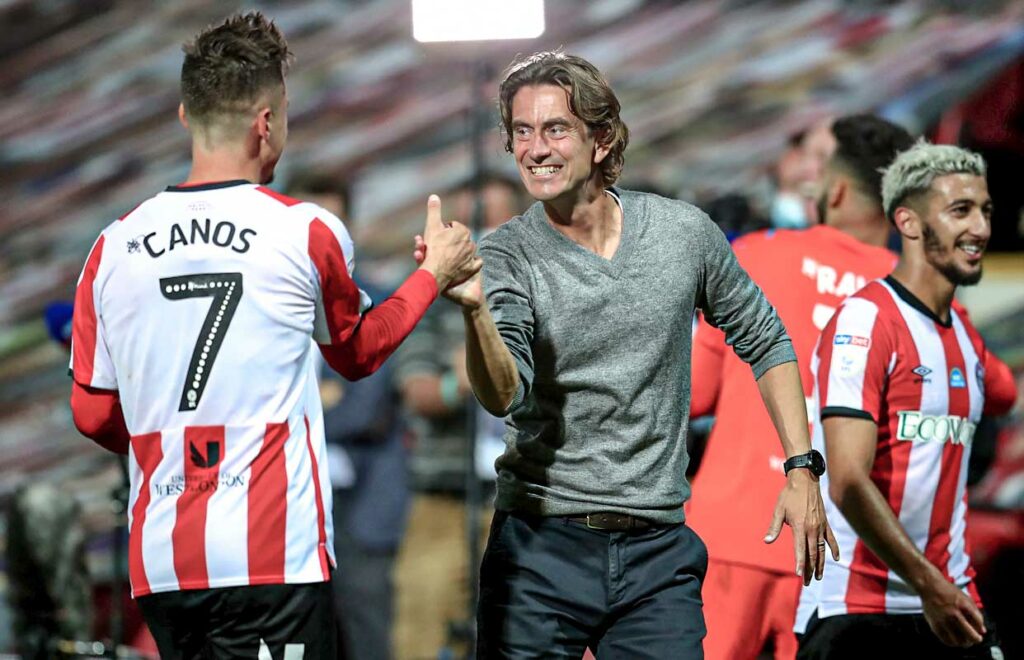
At home in the second leg, we absolutely battered them. We went 2-0 up after 15 minutes and won 3-1 (above). In that game, we showed just how good we could be.
We had Fulham in the playoff final. We’d beaten them 1-0 and 2-0 that season. We knew we could beat them on our day.
But then David Raya, maybe the best goalkeeper in the entire league, made a mistake in extra time, and we lost. Football is such a random game that one moment like that can decide a game. One little mistake can decide your entire season.
So, we had to pick ourselves up and go again for another season in the Championship.
But first, another eventful summer.
"I showed Ivan Toney he was more or less a perfect match for us"
I know for a fact that Ollie Watkins wanted to stay. After a season like that with us – second top-scorer in the Championship with 25 goals – he wanted to play for us in the Premier League. If we’d beaten Fulham, he would have stayed.
But he wanted to be in the top flight, and I’d told him a year earlier that if he wanted to leave, he had to do it on a high. Following that season, who could blame him for wanting to play at the top level? He got a big move to Aston Villa, and we also sold Saïd Benrahma to West Ham – that’s two of the best players in the Championship that we lost.
We set about rebuilding again.
The problem was that we only had a month between the playoff final and the first competitive game of the new season.
Our sporting directors and Lee Dykes in the recruitment department identified Ivan Toney (below, right) as the man we wanted to go for. We set up a meeting with him.
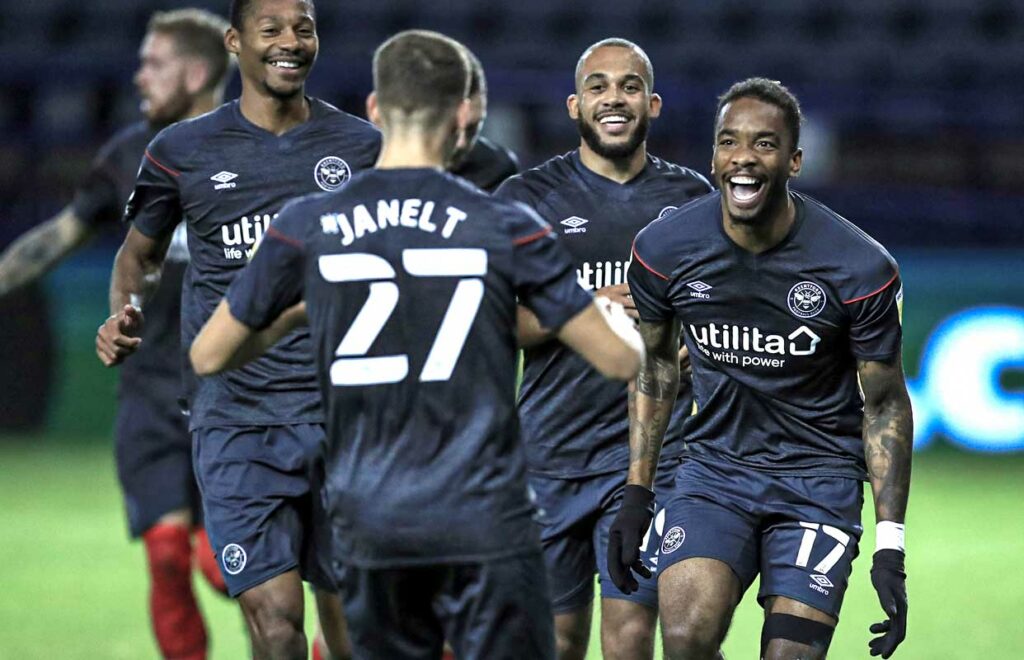
I presented to him our style of play, and how I saw him fitting in to that. What are the key criteria we want from a striker, and how does he fit those key criteria? For example, how does he attack the box, how is his link-up play and how does he press?
I showed him that he was more or less a perfect match for us. He was interested, but he wanted time to think about it. Fair enough.
We didn’t have bags of time, though. The new season was fast approaching.
I was taking a short break in Denmark, but I kept thinking about Ivan. I had to call him.
"Going into the season, I was confident we could do something big"
I stood outside my sister-in-law’s house and phoned him.
“Ivan,” I said. “I don’t get it.
“I know other clubs are interested. But if you come to us, you’re scoring a minimum of 25 goals. I guarantee it.
“The way we play, the type of player you are – it fits. I’m certain you’ll score that many goals.
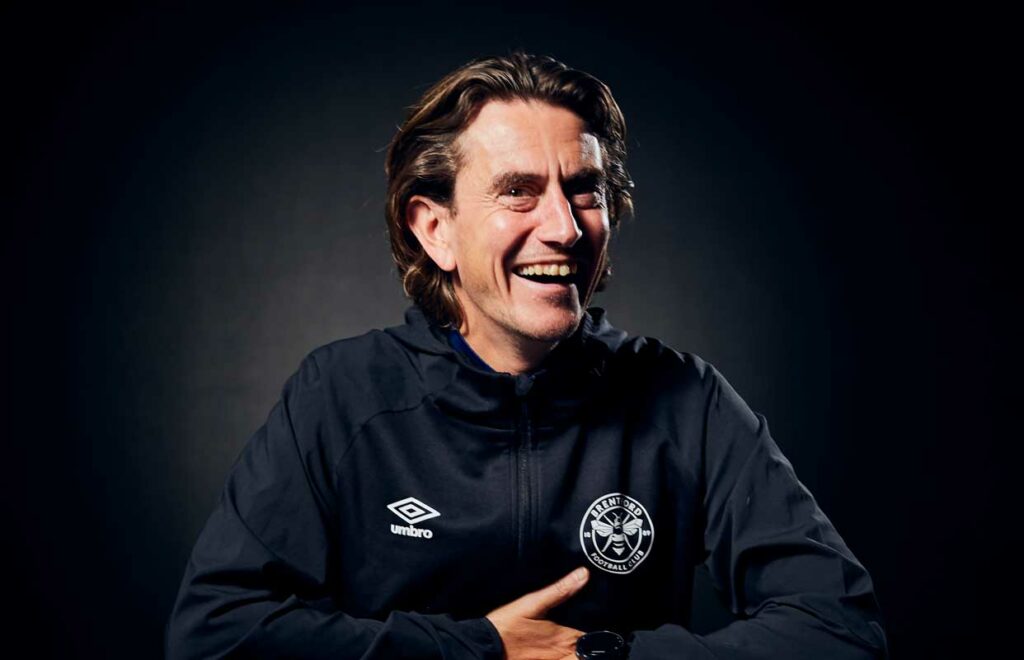
“Either it’s Plan A, and we get promoted together and you play for us in the Premier League – or you score 25 goals and maybe you get a move to the Premier League.”
He was convinced, and it turned out to be the right decision for everyone.
Going into the season, I was confident we could do something big. I had a fantastic feeling that Ivan could be special for us.
We went on a great unbeaten run from October through to February – 21 games without tasting defeat in the league. When we finally lost, we were top of the league.
"There were 4,000 fans there, but they sounded like 40,000"
But then came the bumps in the road. Injuries struck.
We lost Rico Henry, Henrik Dalsgaard and Josh DaSilva, on top of Christian Norgaard, who was already out. Results suffered, and we slipped out of the top two.
By the time we recovered, it was too late. For the second year running, we finished third and went into the playoffs.
Yet again, we lost the first leg of our playoff semi final by one goal to nil – this time to Bournemouth.
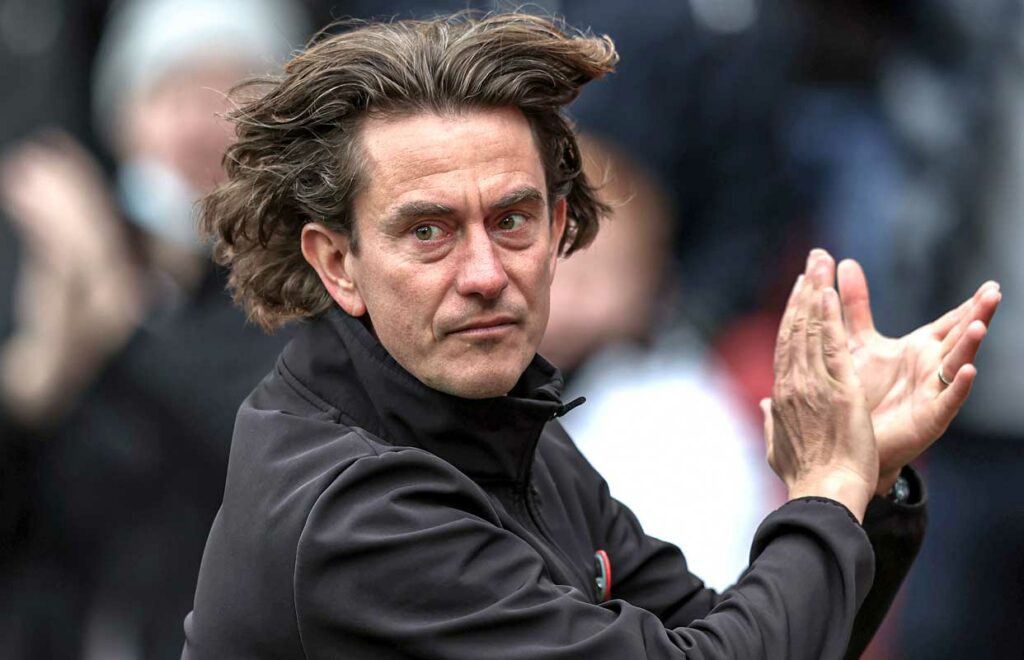
For the return leg, we planned everything meticulously. I wanted to do everything possible to win this game.
I changed my speech before the game. Instead of standing in front of the players, I got them in a huddle and I stood in the middle. I talked through all the qualities I wanted them to show out on the pitch.
Then Christian, who had tried to come back for the game but couldn’t recover in time, asked to make a speech. It was very emotional. Even just thinking about it now, I can feel the goosebumps.
Before kick-off, I ran a lap around the stadium (above). There were only 4,000 fans there, but they sounded like 40,000. Everything had aligned. It all felt perfect.
"It was just as I had told Ivan – that 'Plan A' would work"
We started on the front foot and won an early corner. A good opportunity, I thought. Great.
We pushed right up as we always do, not leaving anyone back on the halfway line. But then Bournemouth cleared the ball and Arnaut Danjuma ran through and scored. We were 1-0 down in the game, 2-0 on aggregate.
I couldn’t believe it. I turned around and smashed my foot into a bin. I told myself to stay cool. I counted to 10.
1, 2, 3, 4, 5, 6, 7, 8, 9, 10.
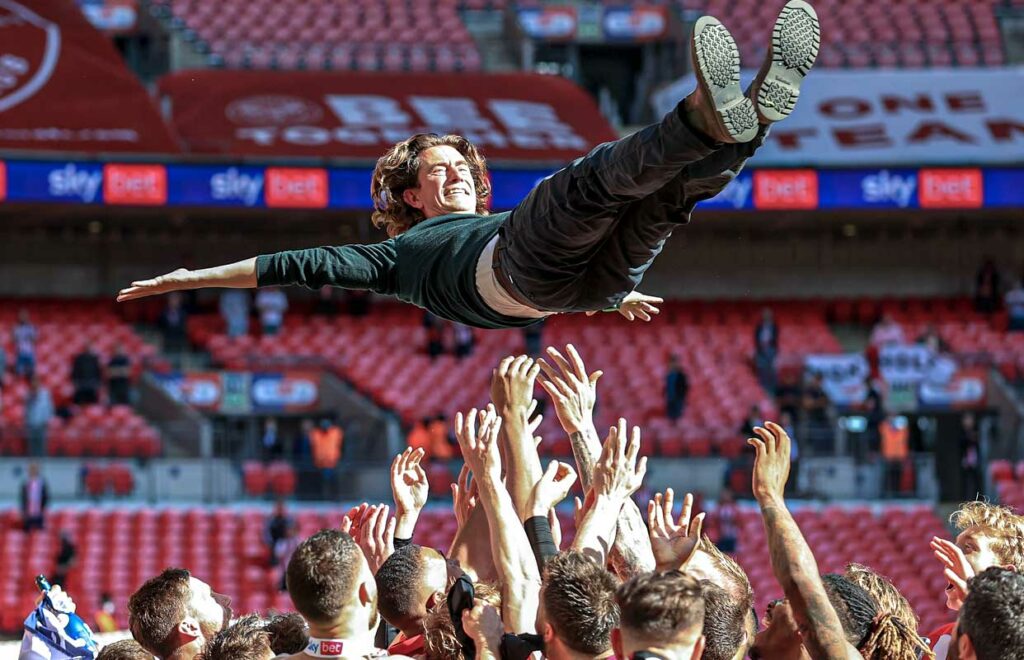
Then I booted the bin again.
I calmed myself down and the players rallied. We equalised with a penalty, and then they got a red card.
At half-time, we decided to go even more offensive. We knew we had to go for it.
It worked, because we scored a second and third, and went through to another playoff final.
I think that was the best performance of the season.
"After the final whistle went, it was the purest feeling of pride, joy and relief"
We had Swansea in the final, and we played like we did in the playoff semi final second leg the previous year. We hit them early, and went 2-0 up inside 20 minutes.
Ivan scored his 33rd goal of the season, and we won promotion to the Premier League. It was just as I told him – that Plan A would work.
Even with all the experience I had, with two minutes of that final to go, I still thought we might not win. So when the final whistle went, it was an amazing feeling (above).
I’d never really had a huge ambition to manage in the Premier League, but we’d worked so hard for so many years for this that I really wanted to achieve it – particularly after losing the playoff final a year earlier.
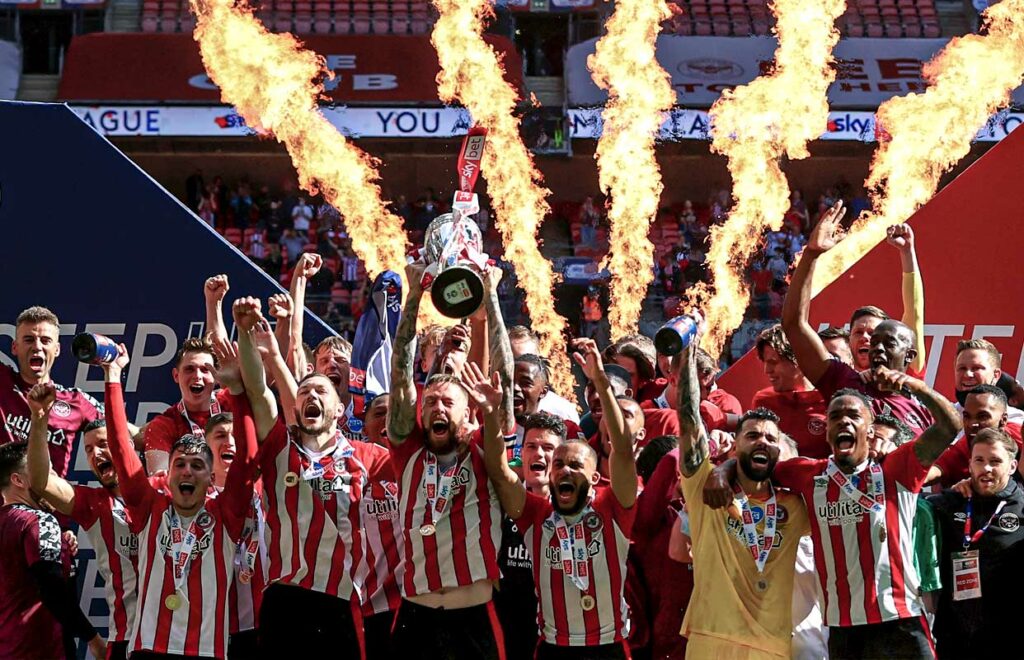
When the final whistle went, it was the purest feeling of joy, relief and pride running through my body. The only thing I can compare it to is the feeling when my children were born.
That moment on the pitch was fantastic. We’d done it. We made sure we enjoyed the moment, and we had a pretty good afterparty as well.
We aren’t ready to stop there, though. We still have big ambitions, and we want to prove we belong at the top.
I know we joke we’re just a bus stop in Hounslow, but that is just an attempt to underplay things.
We want to be here to stay.

Thomas Frank



